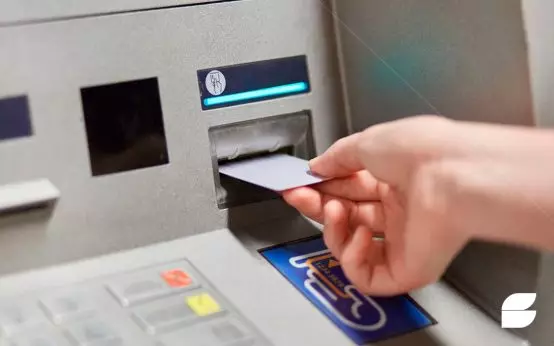Are you drowning in credit card debt and watching your interest charges stack up each month? You’re not alone. Thousands of UK consumers are struggling with rising APRs, cost of living pressure, and financial uncertainty. Fortunately, there are ways to freeze the interest on your credit card—legally and effectively.
In this guide, we’ll share step-by-step strategies, including little-known consumer rights, debt management insights, and smart negotiation tactics. Whether you’re facing temporary hardship or long-term debt, this article will equip you with powerful tools to stop the interest clock and start working toward financial stability.
Why You Need to Act Now

Let’s start with the big picture. UK credit card interest rates reached a record high in 2024, averaging over 23% APR, according to the Bank of England. That means if you carry a balance of £3,000, you’re potentially paying £690 per year in interest alone.
Delaying action could lead to:
- Damaged credit scores
- Debt spirals
- Increased risk of default
1. Know Your Rights Under UK Law
Under the Consumer Credit Act 1974, UK credit card users have certain protections:
- If you’re in financial difficulty, lenders are obligated to consider freezing or reducing interest temporarily.
- Creditors must treat you fairly and offer affordable repayment solutions if you’re struggling.
🔍 Hidden Insight: Most consumers don’t realise that you can formally request a freeze in writing under Section 75A, especially when citing a legitimate change in financial circumstances. This is more effective than a verbal request.
Action Step:
Send a formal letter or email requesting a temporary interest freeze, citing your financial hardship and referencing the FCA’s Treating Customers Fairly (TCF) guidelines.
2. Use the “Token Payment Plan” Strategy
If you can’t afford to make your minimum payments, consider a token payment plan. This involves:
- Offering a small, fixed amount (e.g., £1/month)
- Requesting that interest and charges be frozen
- Submitting a Statement of Means to prove your situation
Credit card companies will often accept this plan for 3–6 months while you stabilise your income.
Pro Tip:
Mention that you are seeking debt advice from an FCA-authorised organisation like StepChange or National Debtline—this strengthens your request significantly.
3. Consider a Debt Management Plan (DMP)
A DMP is a structured, informal agreement between you and your creditors. The key benefit?
✔️ Interest is usually frozen or drastically reduced
✔️ Your monthly payments become affordable
✔️ It doesn’t go on public record (unlike IVAs or bankruptcy)
Commercial Tip: Many financial advisers offer DMPs with no setup fees—be cautious of those who charge upfront.
4. Transfer Your Balance Smartly (But Strategically)
Many UK banks offer 0% balance transfer credit cards for up to 24 months. However:
- You need a strong credit score
- There’s often a balance transfer fee (1–3%)
- If you miss a payment, the 0% interest can be revoked
💡 Unique Insight:
Some banks offer soft credit checks to see if you’re eligible before you apply—this avoids damage to your credit score from multiple applications.
Top Picks (as of 2025):
| Provider | 0% Period | Transfer Fee | Eligibility |
| Santander | 21 months | 2.75% | Good credit |
| NatWest | 18 months | 1.99% | Fair credit |
| Barclaycard | 24 months | 3.45% | Excellent |
5. Negotiate Directly With Your Card Provider
Most people never attempt to negotiate directly—but you’d be surprised how effective a simple call can be.
Key phrases to use:
- “I’m experiencing financial hardship and would like to request an interest freeze.”
- “I’d prefer not to default and am willing to set up a payment plan.”
- “Are you able to offer a hardship program or reduced APR?”
📞 Pro Tip:
Call during off-peak hours (between 9–11am on weekdays). You’ll likely speak with a more experienced representative.
Document everything in writing via follow-up email.
6. Leverage Breathing Space (Debt Respite Scheme)
The Breathing Space scheme, launched by the UK Government in 2021, gives you:
- 60 days of protection from interest and charges
- No enforcement action from creditors
- Access via FCA-approved debt advisers
📌 It’s ideal for short-term hardship, like job loss or medical expenses.
Take Control of Interest Before It Controls You

Freezing interest on your credit card is not only possible in the UK—it’s your right in many cases. By combining legal knowledge, negotiation tactics, and strategic planning, you can stop your debt from ballooning.
Key Takeaways:
- Use the Consumer Credit Act to your advantage
- Consider a Token Payment Plan for temporary relief
- Explore 0% balance transfer cards only if you qualify
- Seek help from FCA-approved debt charities
- Don’t wait—interest never sleeps



 Nationwide Credit Card UK – Advanced Advantages & Application Guide <p class='sec-title' style=' font-weight: normal; line-height: 1.9rem !important; font-size: 17px !important;'> Elevate Your Finances: The Ultimate Guide to Nationwide Credit Card UK </p>
Nationwide Credit Card UK – Advanced Advantages & Application Guide <p class='sec-title' style=' font-weight: normal; line-height: 1.9rem !important; font-size: 17px !important;'> Elevate Your Finances: The Ultimate Guide to Nationwide Credit Card UK </p>  Prepaid Cards in the UK: How to Compare and Apply in 2025 <p class='sec-title' style=' font-weight: normal; line-height: 1.9rem !important; font-size: 17px !important;'> Avoid hidden fees, boost control over your spending, and find the best prepaid card tailored to your lifestyle </p>
Prepaid Cards in the UK: How to Compare and Apply in 2025 <p class='sec-title' style=' font-weight: normal; line-height: 1.9rem !important; font-size: 17px !important;'> Avoid hidden fees, boost control over your spending, and find the best prepaid card tailored to your lifestyle </p>  Can You Pull Money Out of a Credit Card? Fees, Risks & Smarter Alternatives <p class='sec-title' style=' font-weight: normal; line-height: 1.9rem !important; font-size: 17px !important;'> Understand the Rules, Risks, and Smarter Alternatives Before You Use a Cash Advance </p>
Can You Pull Money Out of a Credit Card? Fees, Risks & Smarter Alternatives <p class='sec-title' style=' font-weight: normal; line-height: 1.9rem !important; font-size: 17px !important;'> Understand the Rules, Risks, and Smarter Alternatives Before You Use a Cash Advance </p>